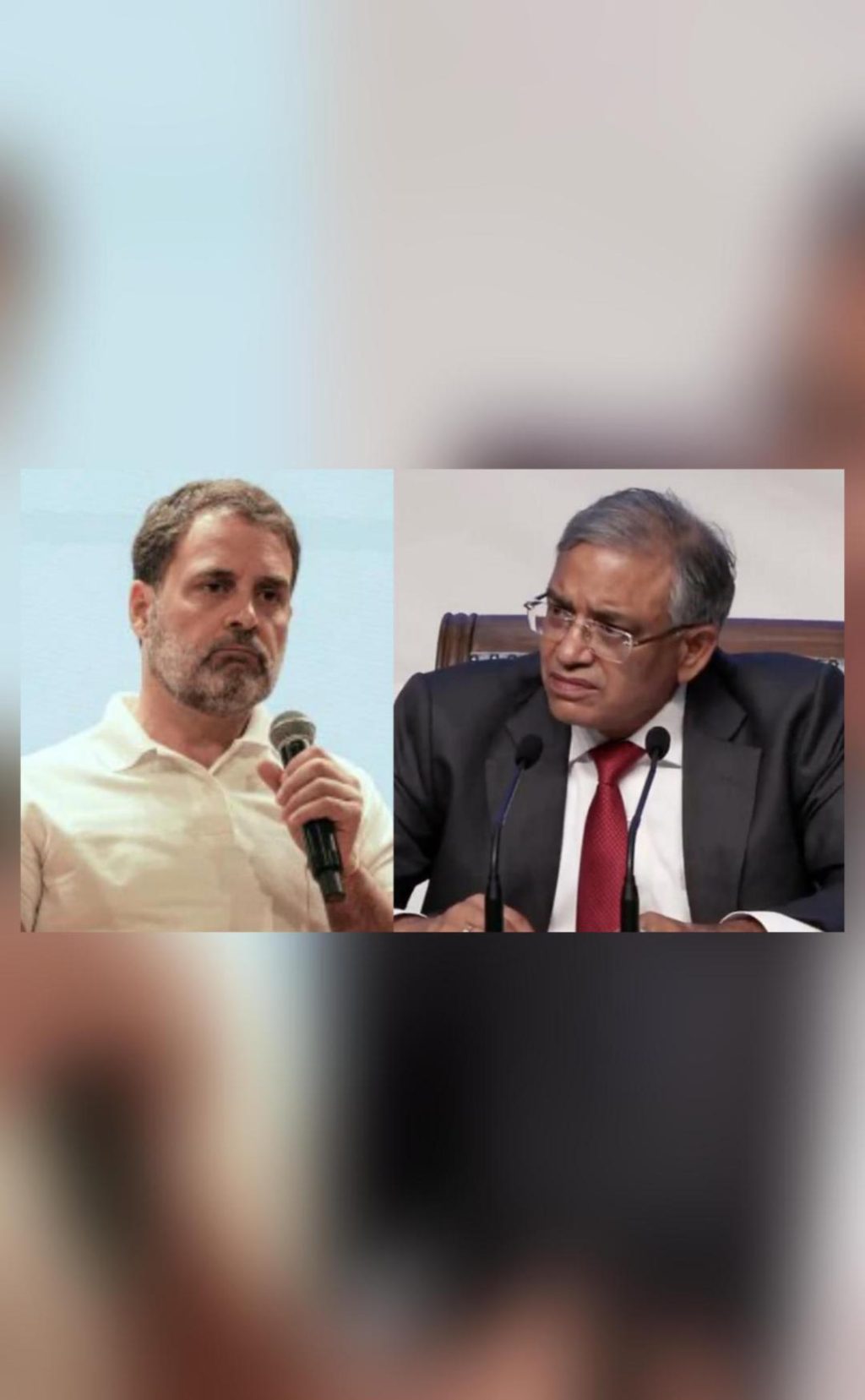
Give Affidavit in 7 Days or Apologise to Nation: Poll Body to Rahul on Vote Theft Claims
The Election Commission of India has issued a stern warning to Congress MP Rahul Gandhi, demanding that he either provide an affidavit to support his claims of “vote theft” or apologize to the nation. The Chief Election Commissioner (CEC), Gyanesh Kumar, made this statement on Sunday, criticizing Rahul’s allegations and emphasizing that the Election Commission will not tolerate any attempts to undermine the sanctity of the electoral process.
Rahul Gandhi had recently claimed that the Bharatiya Janata Party (BJP) had stolen votes in the recent assembly elections in Manipur, Goa, and Uttarakhand. However, the Election Commission has taken strong exception to these claims, labeling them as “baseless” and “unsubstantiated”.
Speaking to the media, CEC Gyanesh Kumar said, “We won’t sit quietly while voters are declared criminals. Give affidavit or apologise to the nation, there’s no third option. If we don’t get the affidavit in seven days, it means all these allegations are baseless.”
The Election Commission’s statement is a clear indication that it will not tolerate any attempts to discredit the electoral process or undermine the faith of the people in the democratic system. The Commission has also made it clear that it will take stern action against anyone who makes frivolous or baseless allegations.
Rahul Gandhi’s allegations have been widely criticized by political parties and experts, who have termed them as “unsubstantiated” and “politically motivated”. The BJP has also accused Rahul of trying to discredit the electoral process and undermine the authority of the Election Commission.
The Election Commission’s warning to Rahul Gandhi is significant, as it sets a precedent for politicians who make false or baseless allegations. The Commission’s stance is also a reminder that the electoral process is a sacred institution that must be respected and protected at all costs.
The controversy surrounding Rahul Gandhi’s allegations has also raised questions about the role of social media in spreading misinformation. Many experts have pointed out that social media platforms have been used to spread false information and propaganda, which can have serious consequences for the electoral process.
In recent years, social media has become an important platform for political campaigns and debate. However, the ease with which false information can be spread on social media has also led to concerns about the integrity of the electoral process. The Election Commission has taken steps to combat fake news and misinformation on social media, but more needs to be done to ensure that the electoral process is protected from the spread of false information.
The warning issued by the Election Commission to Rahul Gandhi is also significant in the context of the upcoming elections. The Commission has made it clear that it will take stern action against anyone who makes frivolous or baseless allegations, and that it will not tolerate any attempts to undermine the sanctity of the electoral process.
In conclusion, the Election Commission’s warning to Rahul Gandhi is a timely reminder of the importance of respecting the electoral process and the need to ensure that the sanctity of the vote is protected at all costs. The Commission’s stance is also a warning to politicians who make false or baseless allegations, and a reminder that the electoral process is a sacred institution that must be respected and protected at all costs.






